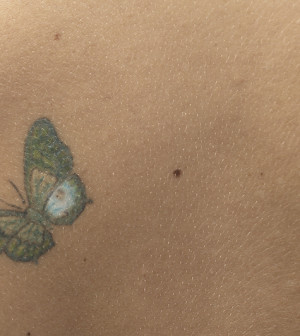- Could Your Grocery Store Meat Be Causing Recurring UTIs?
- Are You Making This Expensive Thermostat Error This Winter?
- Recognizing the Signs of Hypothyroidism
- 10 Strategies to Overcome Insomnia
- Could Artificial Sweeteners Be Aging the Brain Faster?
- Techniques for Soothing Your Nervous System
- Does the Water in Your House Smell Funny? Here’s Why
- Can a Daily Dose of Apple Cider Vinegar Actually Aid Weight Loss?
- 6 Health Beverages That Can Actually Spike Your Blood Sugar
- Treatment Options for Social Anxiety Disorder
Common Culex Mosquitoes Don’t Transmit Zika Virus: Study

The brown Culex mosquito doesn’t appear to be able to transmit the Zika virus to people, researchers report.
The researchers at Kansas State University’s Biosecurity Research Institute said their findings should assist health officials in their efforts to contain the mosquito-borne Zika virus that can cause terrible birth defects.
“It’s very important to know that Culex mosquitoes are not able to transmit Zika,” study author Dana Vanlandingham said in a university news release.
“It enables people to target their control strategies so that they aren’t wasting time and effort on a mosquito that isn’t transmitting Zika virus,” she added.
Vanlandingham is an assistant professor of virology in the College of Veterinary Medicine.
Culex mosquitoes are known transmitters of the West Nile virus and Japanese encephalitis. Scientists suspected these pervasive brown mosquitoes could also carry the Zika virus, the study authors noted.
To address this concern, the Kansas State researchers studied Culex species mosquitoes from across the United States, including regions in Florida near Miami-Dade County where the Zika virus is spreading.
After analyzing the mosquitoes over time, the investigators found the Zika virus disappears in the species and doesn’t multiply.
“This is great news,” said study co-author Stephen Higgs, director of the Biosecurity Research Institute.
“We can check this particular group of mosquitoes off the list here in the U.S. and focus efforts of control on the mosquitoes that we know can infect, like Aedes aegypti and Aedes albopictus.” These types of mosquitoes are black, and black and white, respectively, the researchers said.
It’s important to know which mosquitoes to target. And that’s especially true because mosquitoes live in different environments. Some mosquitoes are found outside and some live more in people’s homes, Higgs said.
The study authors urged people to help protect themselves and others against the Zika virus by getting rid of any small pools or other standing water near their homes, which is breeding ground for mosquitoes.
The findings were published online recently in the journal Vector-Borne and Zoonotic Diseases.
More information
The U.S. Centers for Disease Control and Prevention has more about Zika virus.
Source: HealthDay
Copyright © 2026 HealthDay. All rights reserved.










